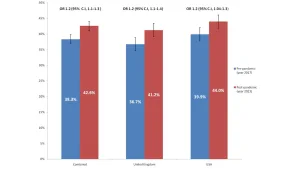Exploring Open Dialogue: A Conversation with Jaakko Seikkula
In a recent podcast, Jaakko Seikkula delved into the origins, impacts, and challenges surrounding Open Dialogue. This innovative approach to mental healthcare has demonstrated promising results, yet faces resistance within traditional psychiatric practices.
The Genesis of Open Dialogue
Seikkula shared the story of how Open Dialogue emerged as a response to the limitations of conventional psychiatric treatments. He highlighted the importance of creating a safe and collaborative space where individuals experiencing mental health challenges can openly express their thoughts and feelings.
Research-Backed Positive Outcomes
The conversation emphasized the research supporting the effectiveness of Open Dialogue. Studies have shown that this approach can lead to:
- Reduced hospitalization rates
- Decreased reliance on medication
- Improved long-term outcomes for individuals with mental health conditions
Psychiatry’s Resistance to Change
Seikkula also addressed the challenges Open Dialogue faces in gaining wider acceptance within the psychiatric community. He discussed the reasons why traditional psychiatry has been slow to adopt the principles and practices of Open Dialogue, including:
- Resistance to changing established protocols
- Concerns about the time and resources required for Open Dialogue
- A focus on medication-based treatments
Key Elements of Open Dialogue
Open Dialogue is characterized by several core principles, including:
- Immediate Response: Providing timely support to individuals and families in crisis.
- Social Network Perspective: Involving the individual’s support system in the treatment process.
- Flexibility: Tailoring the approach to meet the specific needs of each individual.
- Tolerance of Uncertainty: Embracing the ambiguity and complexity of mental health challenges.
Final Thoughts
The podcast with Jaakko Seikkula provided valuable insights into the principles, benefits, and challenges of Open Dialogue. As mental healthcare continues to evolve, it is crucial to explore and implement innovative approaches that prioritize the individual’s voice and promote holistic well-being.




+ There are no comments
Add yours